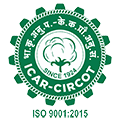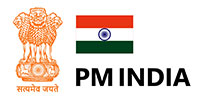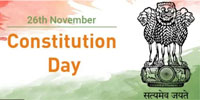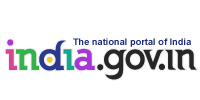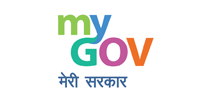
Technologies for Creation of Rural Employment
Over almost nine decades of its existence, ICAR-CIRCOT has been developing new technologies and machinery for better utilization of cotton and other textile fibres. Following are some of our success stories.

Title of the technology
Cotton stalk Briquetting and Pelleting technology
Brief description of the technology
Briquettes and pellets made from cotton stalks are suitable for use in renewable and energy efficient fuel applications. Briquettes can be used as a fuel in any appliances meant for burning wood or coal. Pellets can be used as fuel in domestic stoves and in restaurants. ICAR-CIRCOT has developed technology for production of briquettes and pellets from cotton stalks. This will support to establish the cotton stalk supply chain, giving farmers a profit of Rs. 2,500/- per hectare. The Department of Agricultural Cooperation and Farmers Welfare may provide tractors and chipper machines to individual farmers or group of farmers. This technology will be helpful in doubling the farmers’ income. And this will create employment in rural areas.
Will it support the crisis of mechanization in Corona crisis, if so how
This can be used to overcome the shortage of fire wood that may arise due to lack of labourers, transport etc. due to COVID-19 situation. The potential stakeholders are cotton farmers and briquettes and pellets manufacturers.
Cost of the unit (as per 2019 costs or later)
Briquetting plant: Rs. 50 lakhs for 20 TPD capacity
Pelleting plant: Rs. 3 crore for 30 TPD capacity
Cost of operation per unit size (as per 2019 costs or later)
Briquetting: Rs. 750 per tonne
Pelleting: Rs. 1500 per tonne
Contact details
The Director, ICAR-CIRCOT, Adenwala Road, Matunga, Mumbai – 400019.
Tel. +91-22-24127273/76, +91-22-24184274/75, Fax No.+91-22-24130835/+91-22-24157239,
E-mail: director[dot]circot[at]icar[dot]gov[dot]in
Title of the technology
Paper plates from natural fibre biomass
Brief description of the technology
ICAR-CIRCOT has developed a technology for production of disposable paper plates from the banana pseudostem fibres and sugarcane bagasse. The plastic coating of paper plate is replaced by a novel bee wax or sugarcane wax based coating process. The production process is by pulping the raw materials followed by compression molding process. No binders/additives used during processing, lignin present in the fibres act as the binder. The produced dishwares had sufficient strength for holding the food items and acceptable aesthetic look.
Will it support the crisis of mechanization in Corona crisis, if so how
This technology could be easily adopted in a place where the water source is available in plenty and the raw materials – banana pseudostem and sugarcane bagasse should be available. The potential stake holders are banana farmers, banana fibre extractors, sugarcane industries, Incubators / start-ups.
Cost of the unit (as per 2019 costs or later)
Rs. 8,000 per batch of 20,000 paper plates.
Contact details
The Director, ICAR-CIRCOT, Adenwala Road, Matunga, Mumbai – 400019.
Tel. +91-22-24127273/76, +91-22-24184274/75, Fax No.+91-22-24130835/+91-22-24157239,
E-mail: director[dot]circot[at]icar[dot]gov[dot]in
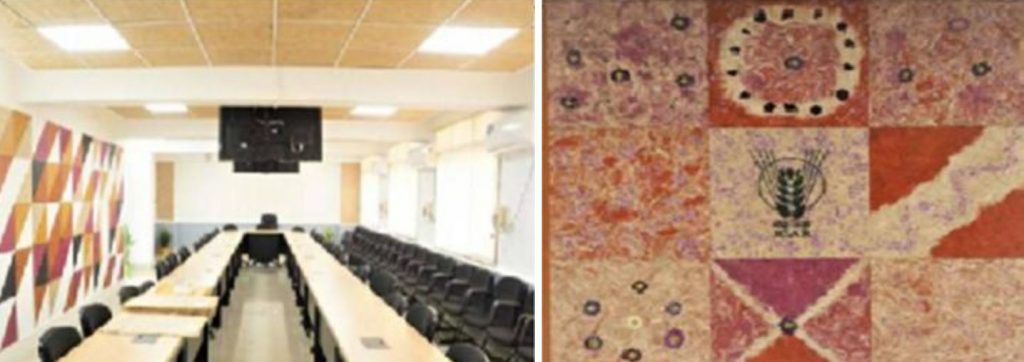
Title of the technology
Decorative wall panels using banana pseudostem fibres and natural binders
Brief description of the technology (not more than 8 to 10 lines)
ICAR-CIRCOT developed innovative decorative wall panels using banana fibres.
Eco-friendly binder is used in the production process
Novel colouring technology is used to colour the banana fibres.
Good acoustic property and very good aesthetic look
Has very good workability hence easy to cut in any shapes and size
Will it support the crisis of mechanization in Corona crisis, if so how (3 to 5 lines)
This technology is suitable in the location where there is a plenty available banana pseudostem fibres.
The potential stake holders are banana farmers, interior decorators and architects.
Cost of the unit (as per 2019 costs or later)
Rs. 20.00 lakhs for molding equipment and other accessories for starting one industry with a capacity of around 100 panels of size 2’ x 2’ per day.
Cost of operation per unit size (as per 2019 costs or later)
Rs. 2000 per batch of 100 panels.
Contact details
The Director, ICAR-CIRCOT, Adenwala Road, Matunga, Mumbai – 400019.
Tel. +91-22-24127273/76, +91-22-24184274/75, Fax No.+91-22-24130835/+91-22-24157239,
E-mail: director[dot]circot[at]icar[dot]gov[dot]in
Title of the technology
Clean cotton picking technology
Brief description of the technology
ICAR-CIRCOT has developed trash and contamination free cotton picking technology. In this process, the farmers are given a kit during cotton picking, which includes a cloth bag for picking cotton, a large bag made of cotton cloth and a head gear to cover the head. The amount of trash in cotton is reduced by using this kit during picking. The contamination free cotton fetches a higher price in the market and the income of the farmers increases by around Rs. 200/- per quintal. The Department of Agricultural Cooperation and Farmers Welfare can provide farmers with the necessary kit for contamination free cotton picking, which will help in enhancing the income of farmers.
Will it support the crisis of mechanization in Corona crisis, if so how
Helps to improve cleanliness of cotton as well as gives less trash percentage in picked cotton with better cotton quality. Cleaner cotton gets better prices in market.
Cost of the unit (as per 2019 costs or later)
Rs. 7.5 lakhs for 100 farmers
Cotton picking kit designed by the ICAR-CIRCOT comprises head gear to cover hair, a cotton apron with pouch that could hold up to 3-4 kg seed-cotton at a time. In addition to this one tarpaulin /cotton sheet of 20ft x 20ft size to place the harvested seed-cotton for drying before it is packed in the bag is required per plot/field. Cotton cloth bags with a capacity to hold 80-90 kg seed-cotton are also required for packing kapas. The approximate cost involved for a farmer employing five labourers for cotton picking would be Rs.7500/- and the material can be used for up to 4-5 seasons.
Cost of operation per unit size (as per 2019 costs or later)
Not applicable.
Contact details
The Director, ICAR-CIRCOT, Adenwala Road, Matunga, Mumbai – 400019.
Tel. +91-22-24127273/76, +91-22-24184274/75, Fax No.+91-22-24130835/+91-22-24157239,
E-mail: director[dot]circot[at]icar[dot]gov[dot]in
Title of the technology
Title of the technology Accelerated Process for preparation of bio-enriched compost
Brief description of the technology
ICAR-CIRCOT developed an accelerated process of cotton stalk composting using microbial consortium.
Due to this process composting of cotton stalk happens in 15-30 days faster compared to normal composting
Also has higher NPK value compared to normal composting resulting in better soil health
Reduces chemical fertilizer use, prevents burning of cotton stalks
Will it support the crisis of mechanization in Corona crisis, if so how
This technology helps to improve the cotton crop residue management and production of good quality compost. It helps to reduce pollution created by burning of cotton stalks in the field.
Cost of the unit (as per 2019 costs or later)
Rs. 2.5 lakhs per village having 1000 acres of cotton cultivated land for purchasing 01 No chipper. If tree shaded place is not available, shed may be erected as per the required capacity.
Cost of operation per unit size (as per 2019 costs or later)
Rs. 3500 per tonne of compost.
Contact details
The Director, ICAR-CIRCOT, Adenwala Road, Matunga, Mumbai – 400019.
Tel. +91-22-24127273/76, +91-22-24184274/75, Fax No.+91-22-24130835/+91-22-24157239,
E-mail: director[dot]circot[at]icar[dot]gov[dot]in
- Back to previous page
- |
-
Page last updated date:13-06-2024 05:58 PM



